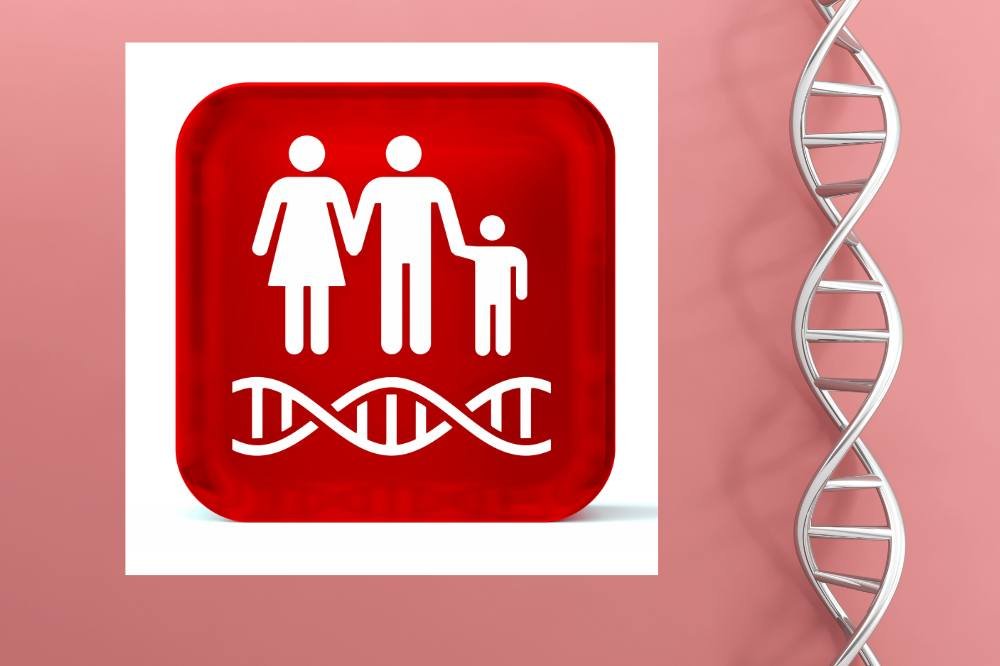11 Reasons of Belly Fat? Main Causes of Abdominal Fat

11 Reasons of Belly Fat
Understanding Causes of Abdominal Fat
Belly fat is a common problem for many people, and it’s not just about how it looks. Excessive abdominal fat can increase the risk of various health problems, including heart disease, diabetes, and cancer. While some people may have a genetic predisposition to store fat in their belly, lifestyle factors play a significant role in the development of abdominal fat. In this article, we’ll explore the most common reasons for belly fat and provide tips on how to reduce it.
Types of Belly Fat
There are generally two types of belly fat: subcutaneous fat and visceral fat.
- Subcutaneous fat is the fat that is visible just beneath the skin and is often referred to as “pinchable” fat.
- Visceral fat is located deep within the abdominal cavity, surrounding the organs, and cannot be seen or easily measured.
Visceral fat is often considered more dangerous than subcutaneous fat, as it has been linked to a higher risk of various health problems, including heart disease, diabetes, and cancer.
Is Belly Fat Dangerous for You?
Yes, belly fat is dangerous for your health it leads to many health issues. Such as Asthma, breast cancer, colon cancer, dementia, heart disease, heart attack, stroke, high blood pressure, and type 2 diabetes.
What are the Reasons of Belly Fat?
There are several reasons why you get belly fat which makes your clothes too fit and affect your personality look.
A Poor Diet Can Increase Belly Fat

The food we eat plays a crucial role in the accumulation of abdominal fat. Consuming too many calories, particularly from high-fat and sugary foods, can lead to excess fat storage in the belly. Eating a diet high in processed foods and low in fiber can also contribute to belly fat. Processed foods are typically high in calories, added sugars, and unhealthy fats that can increase the risk of belly fat.
Foods such as cakes, candy, soft drinks, street foods, and oily foods fall in the poor diet category. These foods can be harmful to your health and may be the reason for many health issues such as weight gain, slowing down your metabolism, and reducing your body’s ability to burn extra fat.
Lack of Exercise or Physical Inactivity

Lack of exercise or physical inactivity is another common reason for belly fat. Today in the fast-moving world, the inactive lifestyles of people increased many health issues in them. People don’t focus on exercise which increases by 35% of obesity chances. You can burn belly fat while focusing on exercise. In the morning before your breakfast, at least walk on fresh morning grass for 25-30 minutes, and after your dinner repeat the same process. While doing this your body will be able to burn belly fat more actively and you feel smart and active. Regular exercise can help burn calories and reduce overall body fat, including abdominal fat. Incorporating cardiovascular exercises, such as running, swimming, or cycling, can also be beneficial for reducing belly fat.
Stress Can Increase Belly Fat

Stress can have a significant impact on our health, including the accumulation of belly fat. A steroid hormone in your body that control and deal with stress is known as cortisol. When we experience stress, our body releases the hormone cortisol, which can increase appetite and cause fat storage, particularly in the abdominal area. Chronic stress can also lead to poor sleep quality, which can disrupt the body’s natural metabolic processes and increase the risk of belly fat.
Use of Alcohol

Alcohol consumption can contribute to the accumulation of belly fat in several ways. Alcohol is high in calories, and excessive drinking can lead to overconsumption of calories and increased fat storage. A report on alcohol (2015) clearly mentioned that people who drank an extra amount of alcohol are more obese other than those who don’t use alcohol. Males get fatter around their bellies while using alcohol and females were inconsistent in that study. You can lose belly fat to stop drinking alcohol. Additionally, alcohol can interfere with the body’s natural metabolic processes, making it more challenging to burn fat and lose weight.
Lack of Sleep Can Cause Abdominal Fat

Lack of sleep can cause body fat or belly fat in several ways. When we don’t get enough sleep, it can disrupt our body’s natural hormonal balance, leading to an increase in appetite and cravings for high-calorie, high-sugar foods. This can cause us to overeat and consume more calories than we need, which can lead to weight gain and an increase in belly fat.
Additionally, lack of sleep can increase the levels of the hormone cortisol, which can lead to fat storage, particularly in the abdominal area. Cortisol can also increase insulin resistance, making it more challenging for the body to regulate blood sugar levels and potentially increasing the risk of diabetes. Finally, poor sleep quality can lead to fatigue and decreased physical activity, which can contribute to a more sedentary lifestyle and decreased calorie burn, leading to an increase in belly fat.
Sugary Foods is the main Reason for Belly Fat

Sugary foods can cause abdominal fat. When we consume sugary foods, our body converts the sugar into glucose, which is then used as energy by the body or stored as glycogen in the liver and muscles. However, when we consume more sugar than our body needs for energy, the excess sugar is stored as fat in the body, including in the belly area. Additionally, sugary foods are often high in calories and can cause spikes in blood sugar levels, leading to an increase in appetite and cravings for more sugary or high-calorie foods. Over time, consuming too much sugar can lead to weight gain and an increase in belly fat, as well as an increased risk of various health problems, including type 2 diabetes, heart disease, and certain cancers.
Low-Protein Diets

A low-protein diet may contribute to the development of belly fat. Protein is an essential macronutrient that plays a crucial role in building and repairing tissues in the body, as well as in the production of hormones, enzymes, and other important molecules. When we don’t consume enough protein in our diet, our body may not be able to perform vital functions properly, leading to a range of health problems, including an increase in belly fat.
One reason that a low protein diet may contribute to belly fat is that protein helps to keep us feeling full and satisfied, reducing our overall calorie intake and helping to prevent overeating. When we don’t consume enough protein, we may be more likely to overeat or consume more high-calorie foods, leading to weight gain and an increase in belly fat.
Low-Fiber Diets

Low-fiber diets can lead to body fat, especially in the belly region. Fiber is an essential nutrient found in plant-based foods such as fruits, vegetables, whole grains, nuts, and seeds. It plays a crucial role in digestive health, helping to regulate bowel movements, promoting feelings of fullness, and supporting the growth of healthy gut bacteria.
On the other hand, Low-fiber foods include white rice, flour, and peeled fruits. When we consume low-fiber diets, it can lead to a range of health problems, including an increase in belly fat. One reason that low-fiber diets may contribute to belly fat is that fiber helps to slow down the digestion of food, promoting feelings of fullness and reducing overall calorie intake. When we don’t consume enough fiber, we may be more likely to overeat or consume more high-calorie foods, leading to weight gain and an increase in belly fat.
Genetics

While lifestyle factors play a significant role in the development of belly fat, genetics can also contribute to its accumulation. Some people may have a genetic predisposition to store fat in the abdominal area, making it more challenging to reduce belly fat through diet and exercise alone.
Smoking and Belly Fat

Many types of research have been published on the harmful effects of smoking but it’s not mentioned that smoking directly causes belly fat but it’s considered a risk factor for your health. In PloS One journal in 2012 a study published, in that study, the ratio of obesity in smokers and nonsmokers was that in smokers, the visceral fat and belly fat was more than compared to nonsmokers.
Age Factor

As we age, our metabolism naturally slows down, and we tend to lose muscle mass, which can contribute to an increase in belly fat. Hormonal changes, particularly in women during menopause, can also lead to an increase in belly fat. However, regular exercise and a healthy diet can help mitigate these effects.
FAQs:
Q: Can spot reduction exercises reduce belly fat?
A: Spot reduction exercises, such as crunches and sit-ups, can help tone the abdominal muscles but do not necessarily reduce belly fat. To reduce belly fat, it’s important to engage in overall weight loss strategies, including a healthy diet and regular exercise.
Q: Are there any supplements that can help reduce belly fat?
A: While some supplements claim to help reduce belly fat, there is limited evidence to support their effectiveness. Additionally, some supplements may have adverse side effects and should only be used under the guidance of a healthcare professional.
Q: Can Increasing water intake shed belly fat?
A: Yes, increasing water intake may help to shed belly fat. Water is an essential nutrient that plays a crucial role in various bodily functions, including digestion, metabolism, and the removal of waste products. One reason that increasing water intake may help to shed belly fat is that it can help to promote feelings of fullness and reduce overall calorie intake. When we don’t consume enough water, it can lead to a range of health problems, including an increase in belly fat.
You Might be Interested In…


You May Also Like

7 Reasons Why You Have a Headache?
21/02/2024
Is Yogurt Good for Constipation?
19/02/2024